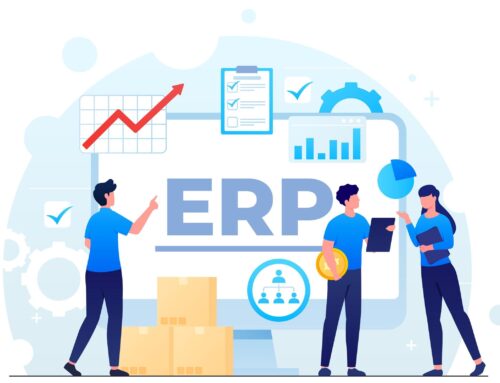The food industry operates rather differently from other industries with large inventories. The inventory stock in the food industry is often perishable, which changes the way food companies manage inventory and deliveries. One critical point of consideration when it comes to food storage would be its lifespan and expiry date. Due to the perishable nature of food, food companies have to manage inventory efficiently and accurately to ensure that stock will not expire before being sold and are able to stay fresh in storage facilities.
Food companies also face a different set of problems when it comes to inventory management, such as having too much capital tied up in stock and inaccurate sales projections, which can be easily resolved by implementing a reliable Enterprise Resource Planning (ERP) system.
Let’s take a closer look at why efficient inventory management is crucial for the food industry.
1. Optimise Stock Replenishment
When it comes to the food industry, food replenishment is a tricky business as food is highly perishable and business owners would not want to be in the position where expensive food products expire before being sold or having sold food products that are not fresh. With the implementation of a reliable ERP system, efficient processes will be put in place to optimise stock replenishment schedules.
ERPs can also help to accurately forecast the demands of your consumers and allows better management of product expiry in general. This means that stock will not be replenished too early (before the current stock has been sold), or too late, resulting in food items being out of stock for consumers.
2. Real-time Inventory Management
Other than providing you with accurate forecasts, having the resources to allow you to track your inventory in real-time is also important as it provides heightened visibility of your inventory and allows you to access information about your own products in real-time. With ERP software implemented for your business, there will be increased visibility of where your products are kept and located within and outside of your facility, and whether they have been packed or shipped out on time.
Naturally, with more visibility of items in your inventory, your staff will be able to balance stock more effectively and reduce the chances of items running out of stock when customers make orders. This way, food gets to the shelves within a shorter period of time and while it is still in its prime or best condition.
3. Optimal Warehouse and Schedule Planning
For food products to be transported or delivered to other locations on suitable days, there needs to be intricate planning involved. With a reliable ERP system, schedules can be easily seen and checked at a glance with an interactive interface.
For example, management staff can track the movement of temperature-controlled food items to ensure that they are delivered within the shortest possible time frame or plan for the storage of highly perishable items at the most accessible spots for more efficient deliveries. Your staff can also plan for the best storage area or free up more storage space for each food within the warehouse before incoming stock arrives.
Reap The Full Benefits of ERPs for Your F&B Business with Naviworld
There are plenty of benefits for F&B businesses in Singapore when it comes to ERP implementation – far more than just better inventory management. ERP software can boost the efficiency of your company as a whole with its advanced integrations that can help you and your staff have full visibility of all accounts payables and receivables and cut down on the need for paperwork with increased automation.
Convinced to give ERPs a try? Here at Naviworld, we have skilled consultants that can help you and your company with ERP implementation. Reach out to find out more today.




